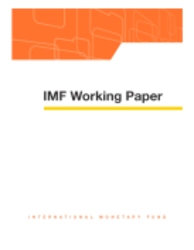
Exits From Pegged Regimes : An Empirical Analysis
Using countries' de facto exchange rate regimes during 1985-2002, this paper analyzes the determinants of exits from pegged regimes, where exits involve shifts to more or less flexible regimes, or adjustments within the existing regime. Distinguishing episodes characterized by "exchange market pressure" from orderly exits, the estimated probabilities of alternative exit episodes indicate that crises are preceded by a deterioration of economic conditions. In contrast, orderly exits to less flexible regimes are preceded by long regime duration, a decline in financial liabilities of the banking system, and an increase in official reserves. Exits to more flexible regimes are associated with both emerging market and other developing countries, and an increase in trade openness and government borrowing from banks. The results are robust to alternative sensitivity analyses and have reasonable predictive performance, confirming that economic and financial conditions and regime duration play important roles in determining the future course of exchange rate regimes.
Publication date: July 2003
ISBN: 9781451856750
$15.00
Add to Cart by clicking price of the language and format you'd like to purchase
Available Languages and Formats
| English |
Prices in red indicate formats that are not yet available but are forthcoming.
Topics covered in this book
This title contains information about the following subjects.
Click on a subject if you would like to see other titles with the same subjects.
Money and Monetary Policy , Money and Monetary Policy , International - Economics , International - Economics , Pegged exchange rates , floating regimes , determinants of exits , exchange rate , exchange rate regime , exchange rate regimes , trade openness , flexible exchange rate
Summary



